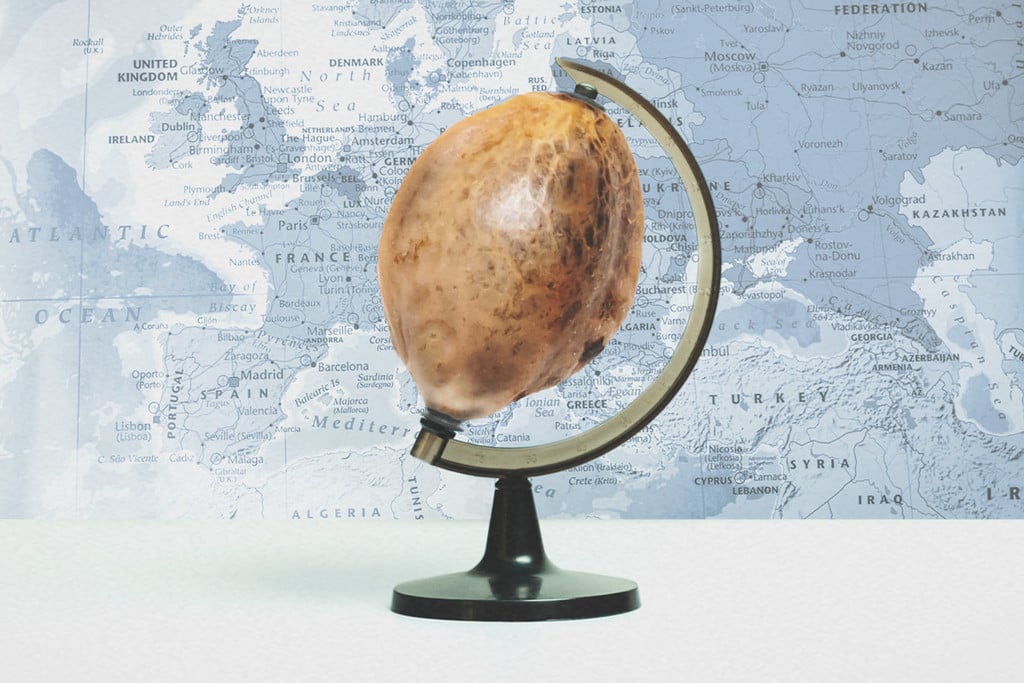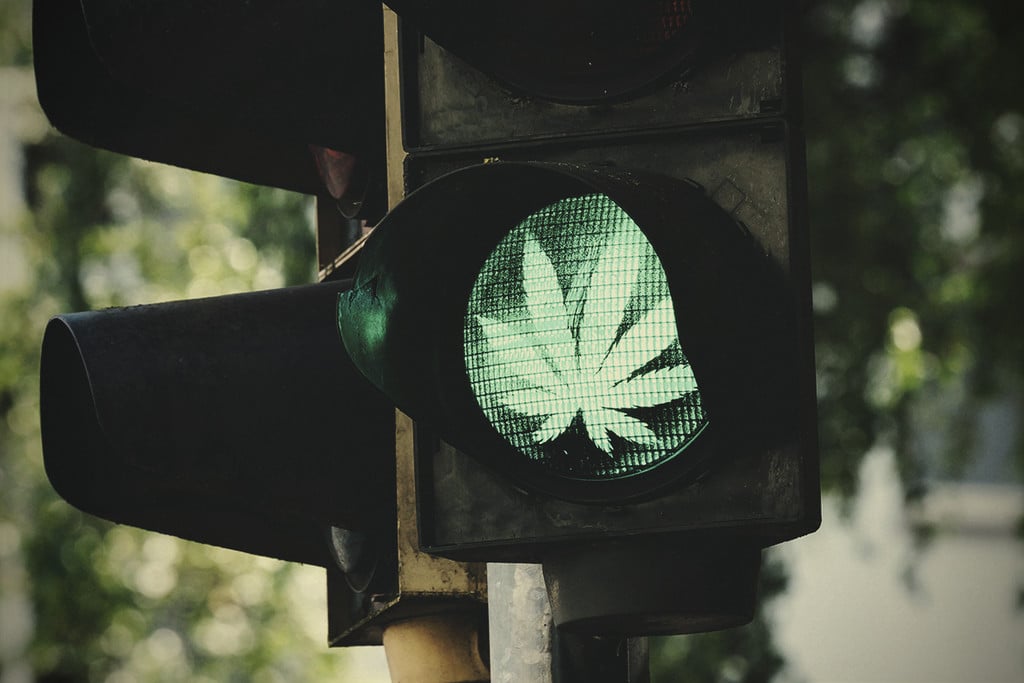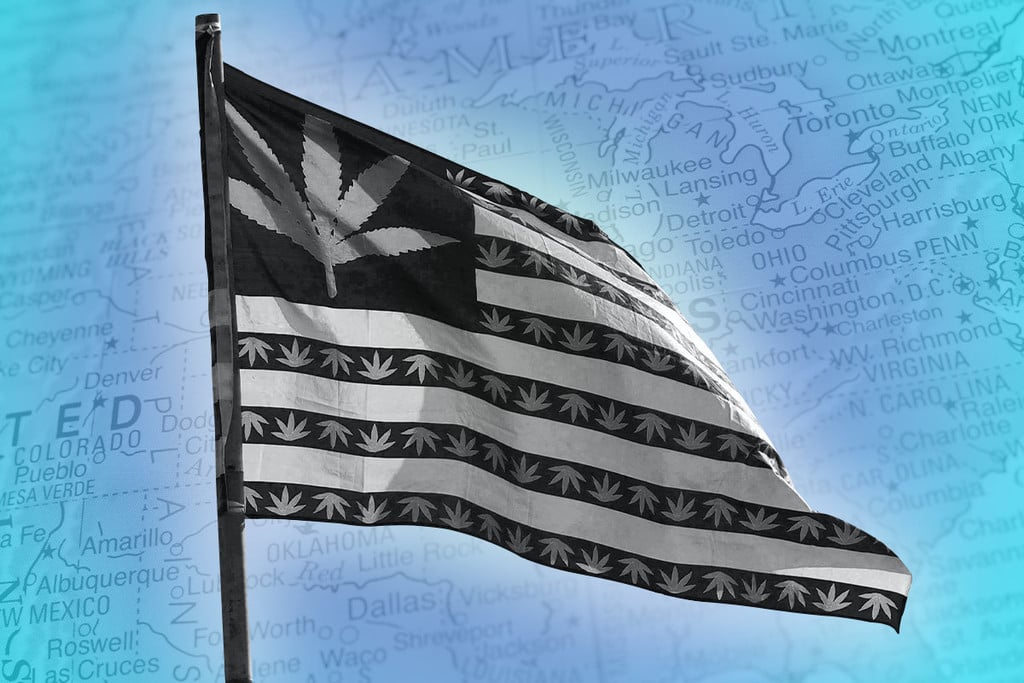.
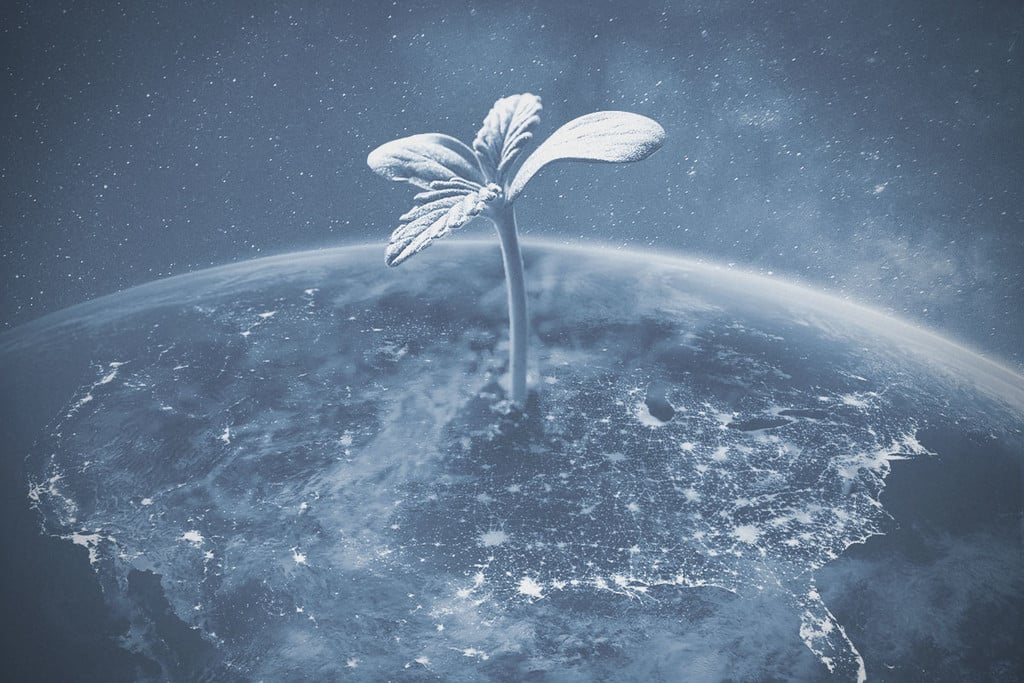
Is It Legal To Grow Weed In The US in 2025?
Wondering if it's legal to grow weed in your state? Keep scrolling for an overview of all US state cannabis cultivation laws, from Alabama to Utah!
The US has some of the most liberal cannabis laws in the world, and they are ever-growing. With 39 states adopting legal cannabis programs, more and more US-Americans are demonstrating interest in growing their own weed, either for recreational or medicinal purposes. However, the law surrounding cultivation is murky at best. Keep reading to learn where in the US it's legal to grow cannabis.
Contents:
- The difference between us federal and state cannabis laws
- Where is it legal to grow in the us: personal use, recreational and medical
- Where is it legal to grow in the us: medical use
- Where in the us is growing weed still not clearly defined?
- What are the requirements to grow weed industrially in the us?
- Can you legally purchase cannabis seeds in the us?
- Royal queen seeds has landed in the us!
- Growing weed in the usa
The Difference Between US Federal and State Cannabis Laws
The US is home to a billion-dollar cannabis industry that exists on somewhat unstable legal ground. While the federal government continues to see cannabis as a Schedule 1 substance (that is, a substance with no accepted medical use and high abuse potential, like heroin or cocaine), 38 states and the District of Columbia have legislated to legalise cannabis to some degree.
This legal paradox exists because all 50 US states are considered sovereign and have the right to make laws about anything that hasn't been covered in the federal constitution. Nonetheless, some states have decided to take the matter of regulating cannabis into their own hands, despite the fact that federal law clearly forbids its possession, sale, and use. According to Article VI of the US constitution, federal law reigns supreme in cases where state and federal laws oppose one another, meaning that the federal government can technically prosecute citizens in a state where cannabis is legal for possessing, using, growing, or selling cannabis.
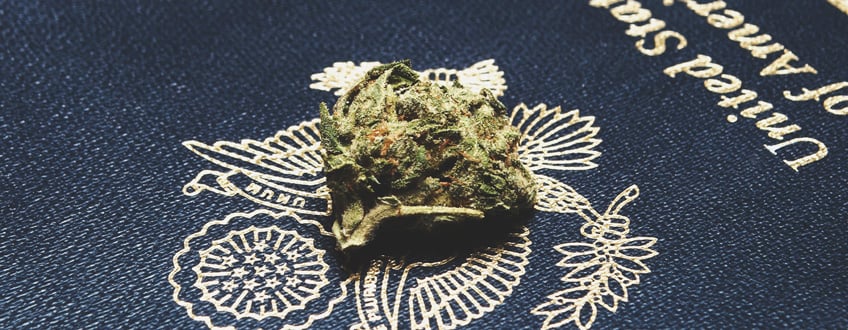
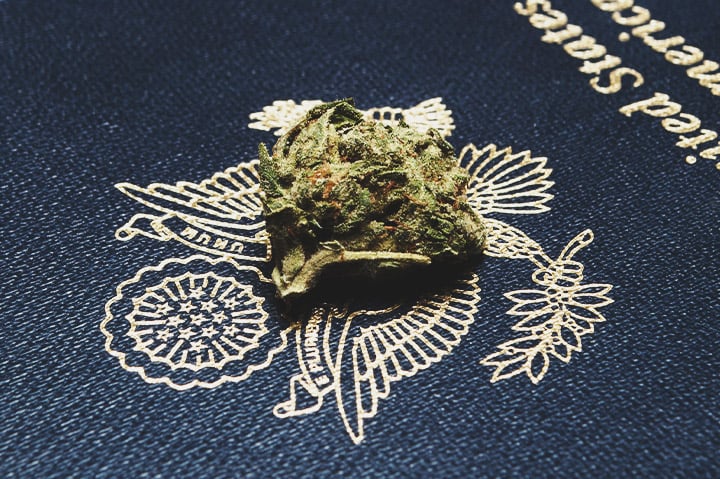
Where Is It Legal To Grow In The US: Personal Use, Recreational and Medical
At the time of writing this article, the following states allow citizens to grow cannabis for both medical and recreational purposes:
- Alaska
- California
- Colorado
- Maine
- Massachusetts
- Michigan
- Nevada
- Oregon
- Vermont
- Virginia
- Washington
Note that state laws regarding the cultivation of cannabis can vary greatly, and every state has its own laws regarding the number of plants a person can cultivate. In Alaska, for example, recreational users can grow up to six plants per person, and households can only grow a maximum of 12 plants. Likewise, California allows six plants per person, though counties and cities may further restrict how a person cultivates, by requiring plants to be cultivated indoors or requesting growers register for special permits. Meanwhile, Maine restricts cannabis growers to three mature plants at a time.
Since each state has its own approach to regulating how people cultivate cannabis, it's important that growers understand their local laws and ensure they abide by them.
Where Is It Legal To Grow In The US: Medical Use
At the time of writing this article, the following states allow cannabis cultivation for medical purposes:
- Arizona
- Hawaii
- Illinois
- Maryland
- Minnesota
- Missouri
- Montana
- New Hampshire
- New Mexico
- Oklahoma
- Rhode Island
- South Dakota
- Utah
Note that these states may have tighter restrictions on cultivation. These states allow registered patients (or their caretakers) to cultivate cannabis. In order to register as a medical marijuana user, patients typically have to get certified by a doctor. In most of the above states, medical marijuana is only permitted for people with particular qualifying conditions.
Restrictions on where, how, or how many plants a person cultivates also exist in many of these states. In Nevada, for instance, patients can only cultivate cannabis if they live more than 25 miles from a dispensary or if they're unable to travel to a dispensary for specific reasons. Rhode Island only allows patients to grow up to six plants (of which only three can be mature or flowering), while South Dakotans can only grow weed if they live in an area with no licenced dispensary.
Again, be sure to read up on your local laws if you're a medical patient planning to cultivate your own medicine in any of the aforementioned states.
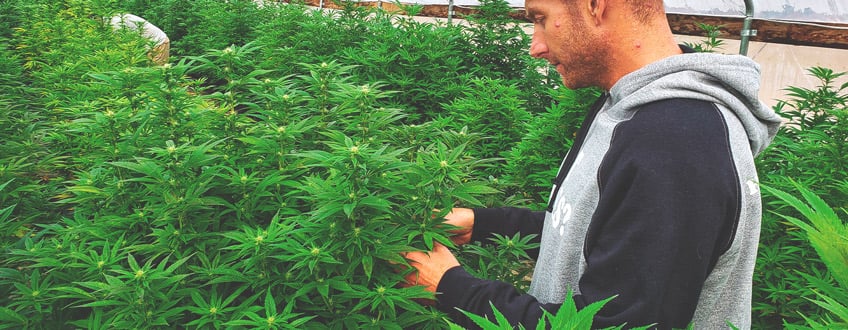
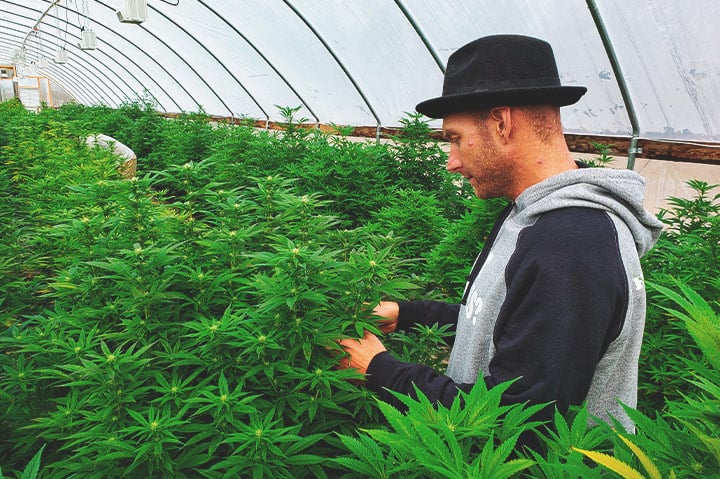
Where in the US is growing weed still not clearly defined?
There are a number of states that have legalised medical cannabis to some degree, yet do not allow patients to cultivate their own. These states are:
- Arkansas
- Connecticut
- Delaware
- Florida
- Iowa
- Louisiana
- New Hampshire
- New Jersey
- North Dakota
- Pennsylvania
- Ohio
- Utah
- West Virginia
The good news is that support for legalisation has grown tremendously in recent years. Polls show that close to 90% of US-Americans believe cannabis should be legal to some extent[1].
In 2018, the Farm Bill[2] descheduled hemp cultivation (i.e. low THC cannabis) for the first time. The DEA has also stated that it will not pursue or prosecute people who buy cannabis seeds (any seed, tissue culture, or plant material that contains less than 0.3% THC autumns under the category of hemp and outside of the Controlled Substances Act (CSA)), while President Joe Biden officially pardoned[3] people trialled for possessing cannabis.
Of course, it’s important to determine the legality of purchasing and possessing cannabis seeds in your state, as these policies are constantly changing.
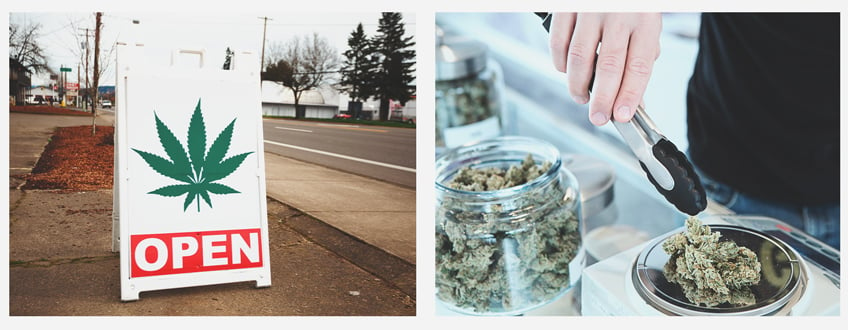
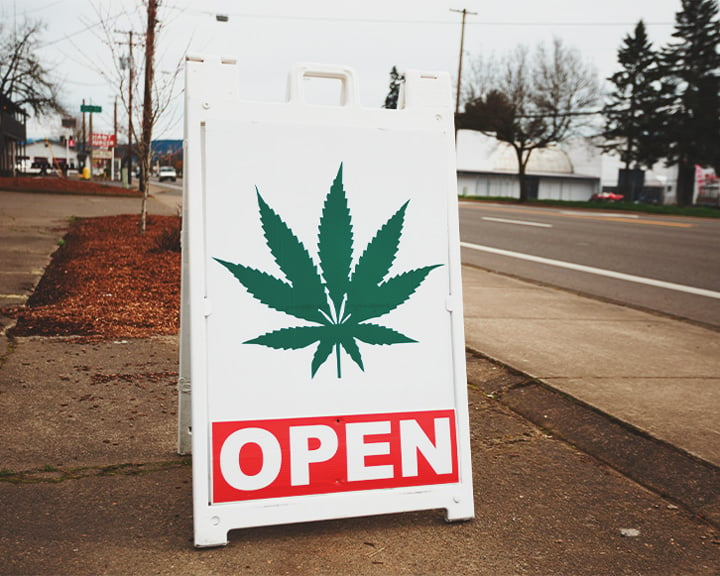
What Are The Requirements To Grow Weed Industrially In The US?
Growing cannabis on an industrial level is a completely different ball game than growing it at home for personal use. State laws differ dramatically, and many states have only a limited number of licences for commercial growers. Depending on the state, registering as a commercial cannabis grower may involve:
- Paying an application fee (in some states, this fee is refundable if the application is unsuccessful—in others, it is not). Licence application fees vary from state to state.
- Paying a licence fee once your application is accepted. Fees vary greatly depending on the kind of licence you wish to acquire.
- Paying a performance bond or annual licence renewal fee.
- Paying back a percentage of sales to a state cannabis business development fund.
Can You Legally Purchase Cannabis Seeds In The US?
The US Controlled Substances Act does not distinguish between different parts of the cannabis plant—it simply lists "marihuana" as a Schedule I substance. For a long time, this meant that anyone caught possessing or selling cannabis seeds could face charges of trafficking or handling a scheduled substance. Thanks to the 2018 Farm Bill, however, those days seem to be over.
In 2022, after being questioned by a New York lawyer, the DEA announced that cannabis seeds (as well as other parts of the cannabis plant) qualify as legal hemp as long as they contain no more than 0.3% THC (as specified under the 2018 Farm Bill).
Royal Queen Seeds Has Landed in The US!
There's never been a time to grow your own weed. Following the advancements we just mentioned regarding the legality of weed seeds in the US, we seized the opportunity to set up shop in America as quickly as possible. We're proud to announce that we've opened new Royal Queen Seeds headquarters in the US, from where we ship our world-renowned genetics all over the nation.
Since all our cannabis seeds contain less than 0.3% THC, they can be shipped legally to all 50 states. If you've been itching to try our genetics for yourself, now's the time! Browse our catalogue and stock up on our beloved strains today!
Growing Weed In The USA
The US might be home to arguably the largest cannabis industry in the world. Nonetheless, the legal landscape regarding cannabis, particularly its cultivation, is extremely murky. While cannabis cultivation remains illegal in the eyes of the feds, 24 states now allow the cultivation of cannabis either for recreational or medicinal purposes.
- Overwhelming support for legal recreational or medical marijuana in U.S. | Pew Research Center https://www.pewresearch.org
- Hemp Production and the 2018 Farm Bill - 07/25/2019 | FDA https://www.fda.gov
- Biden overhauls U.S. policy on marijuana, pardons prior federal offenses | Reuters https://www.reuters.com




























